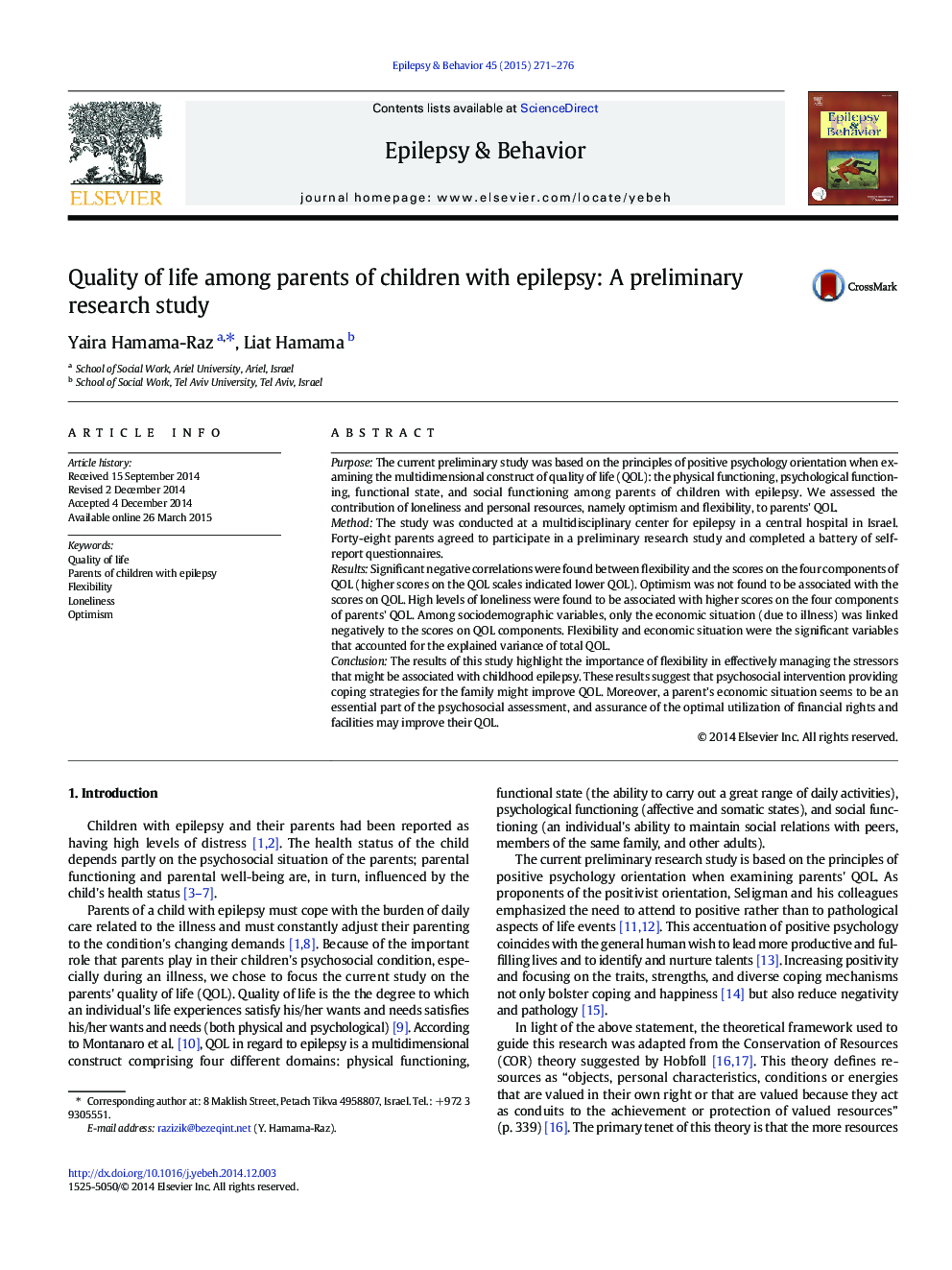| Article ID | Journal | Published Year | Pages | File Type |
|---|---|---|---|---|
| 6011314 | Epilepsy & Behavior | 2015 | 6 Pages |
â¢Flexibility was found to be an important coping resource for parents of children with epilepsy.â¢Loneliness of parents of children with epilepsy was linked to lower quality of life.â¢Economic state of parents of children with epilepsy was linked to lower quality of life.â¢Enhancing coping resources is essential in promoting parents' quality of life.
PurposeThe current preliminary study was based on the principles of positive psychology orientation when examining the multidimensional construct of quality of life (QOL): the physical functioning, psychological functioning, functional state, and social functioning among parents of children with epilepsy. We assessed the contribution of loneliness and personal resources, namely optimism and flexibility, to parents' QOL.MethodThe study was conducted at a multidisciplinary center for epilepsy in a central hospital in Israel. Forty-eight parents agreed to participate in a preliminary research study and completed a battery of self-report questionnaires.ResultsSignificant negative correlations were found between flexibility and the scores on the four components of QOL (higher scores on the QOL scales indicated lower QOL). Optimism was not found to be associated with the scores on QOL. High levels of loneliness were found to be associated with higher scores on the four components of parents' QOL. Among sociodemographic variables, only the economic situation (due to illness) was linked negatively to the scores on QOL components. Flexibility and economic situation were the significant variables that accounted for the explained variance of total QOL.ConclusionThe results of this study highlight the importance of flexibility in effectively managing the stressors that might be associated with childhood epilepsy. These results suggest that psychosocial intervention providing coping strategies for the family might improve QOL. Moreover, a parent's economic situation seems to be an essential part of the psychosocial assessment, and assurance of the optimal utilization of financial rights and facilities may improve their QOL.
